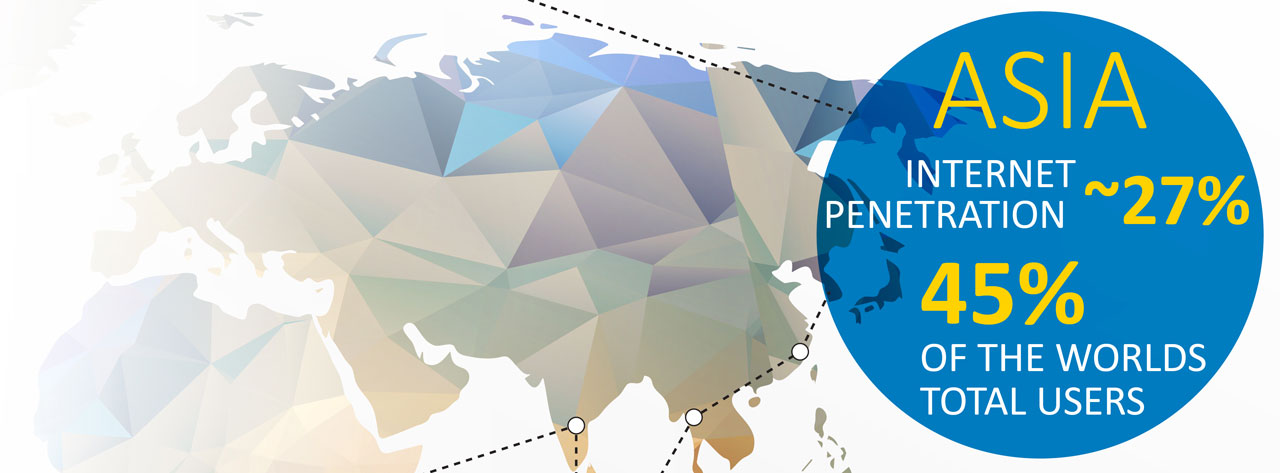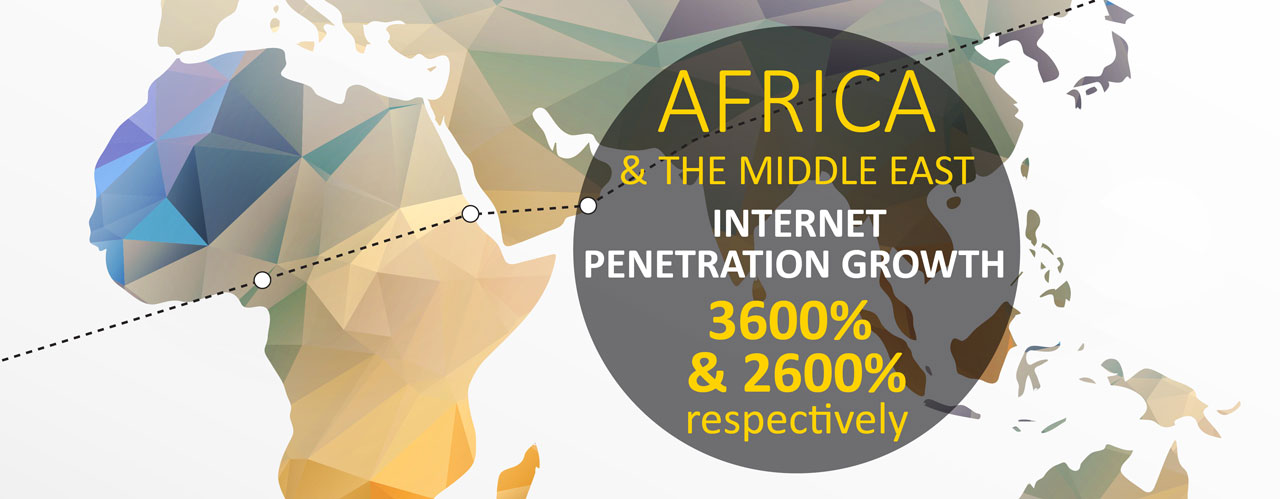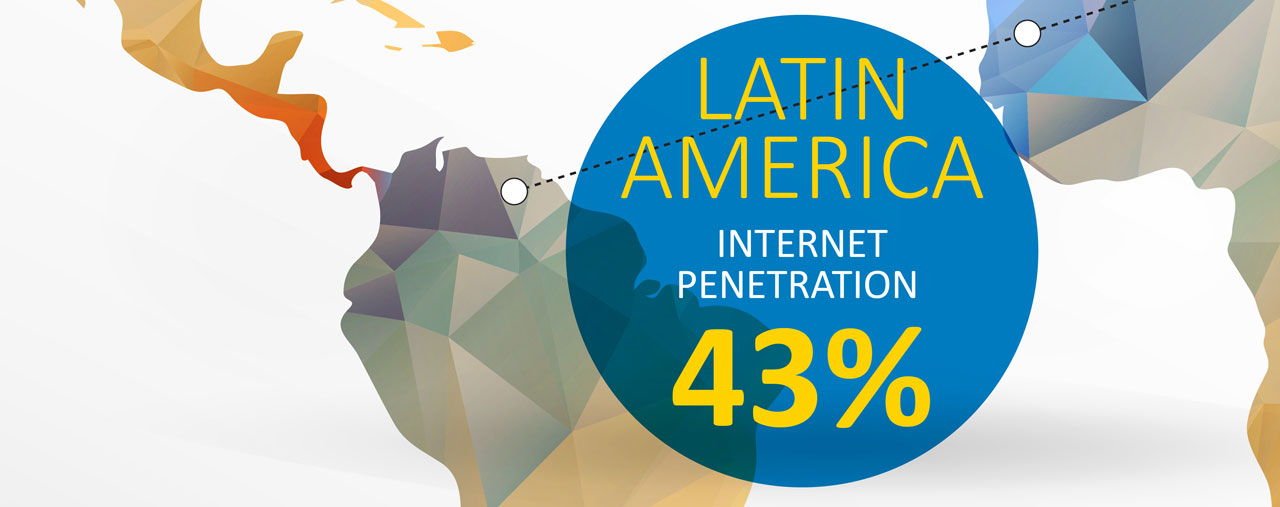Chapter 2 - The State of the Internet
It is now no longer enough to simply state that more and more people are ‘getting online’ or that crime is becoming increasingly facilitated by the Internet. The Internet is now firmly here - for almost everyone - and is an established daily platform for communication, business, socialising, expression, commerce and crime. Few aspects of daily life are not, or cannot, be planned or accomplished online.
In 2013, the average Internet penetration [4] in the EU was estimated to be 75%, compared to an average global penetration of 39%. This represents almost 380 million Internet-enabled Europeans. In some EU states – typically Nordic countries – penetration is in excess of 90%. Europe-wide this represents a growth of almost 400% in just over a decade [5].

Despite its low Internet penetration (~27%), Asia’s population of almost 4 billion still correlates to over 1 billion Internet users - 45% of the world’s total users.

Africa and the Middle East have less than 5 million Internet-enabled citizens each, but both have witnessed a meteoric growth in Internet penetration over the last decade - 3600% and 2600% respectively.

Latin America is also rapidly becoming a major component of the global Internet community with 43% penetration, growing by 1300% in 10 years [6].
A large part of this growth can be attributed to the boom in the sale of smartphones and tablets. Less than a decade ago, Internet access was restricted to those with the luxury of a desktop PC. While globally the number of PCs with a home broadband connection sits at just below the 700 million mark, the number of active mobile broadband subscriptions is approximately three times that figure [7]. Cheap, affordable mobile devices are bringing the Internet to masses. It is estimated that global smartphone sales will reach 1.2 billion in 2014, a figure equal to the combined population of Europe and North America.
The Internet has heralded a change in the behaviour of society and how family, friends, colleagues, customers, suppliers, businesses big and small, governments and nations interact. Consumers publish their lives on the Internet, sharing their data with a multitude of entities; businesses - from small ventures to sprawling corporations - all have a presence on the Internet, and are increasingly shifting their data and resources to cyberspace; governments and public sector bodies are also moving services and resources online.
Across all of these interactions there is an intrinsic need for security. No security feature is impenetrable however, and where there are vulnerabilities - whether in hardware, software or in simple trust - there are opportunities for exploitation.
The Internet has created a unique ecosystem for the criminal exploitation of vulnerable online entities. It provides an environment where a perceived level of anonymity implies a lack of consequence and thereby a lack of responsibility. Out of the billions of individuals now accessing the Internet, literally with the world at their virtual fingertips, for those with sufficient curiosity and/or the inclination towards the illicit, all that is lacking is opportunity.
Enter the digital underground economy.



